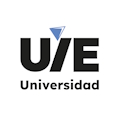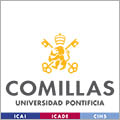BEng (Hons) Mechatronics and Robotics - Grado en Ingeniería Mecatrónica y Robótica
-
Imparte:
-
Modalidad:Presencial
-
Precio:Unlimited number of Scholarships available for next academic year
UK/ROI/Channel Islands: £9,250 per year
International: £18,800 per year
Foundation year: £9,250 (UK, ROI & CI) £18,800 (Int´l) -
Comienzo:Septiembre 2026
-
Lugar:Bournemouth
Reino Unido -
Duración:3 Años
-
Titulación:BEng (Hons) Mechatronics and Robotics
This degree offers a comprehensive, industry-informed curriculum that integrates the practical application of scientific and engineering with business skills.
120 - 128 tariff points including a minimum of 2 A levels in required subjects, or equivalent. BTEC Extended Diploma DDM in a required subject. Foundation year: 48-72 UCAS tariff points. DMM. For more information check out our full entry requirements.
International entry requirements:
For September 2025 entry: If English is not your first language you´ll need IELTS (Academic) 6.0 with minimum 5.5 in each component, or equivalent.
The programme offers the flexibility to pursue either a BEng (Bachelor of Engineering) or MEng (Master of Engineering) qualification, catering to your specific career aspirations and academic goals.
The course provides a comprehensive understanding of multidisciplinary Robotics and Mechatronics, integrating mechanical systems, electronics, and intelligent computer-based control. It equips you with the latest technical skills and competencies to work across different engineering disciplines.
You’ll learn from industry-seasoned academics, practitioners, and guest speakers, gaining insights from their practical experience and industry knowledge.
Students have access to the state-of-the-art Innovation Centre, a designated space for Design and Engineering students, fostering a conducive learning environment.
Take part in a career-affirming minimum 30-week period in a work placement, helping you to make contacts and boost your potential within the profession. With the Robotics industry on the rise, jobs in robotics are in high demand. The programme prepares you for a range of roles such as Mechatronics Engineer, Robotics Engineer or even Mechanical Engineer.
Exhibit your work at the Festival of Design & Engineering, one of BU’s longest running events, giving the public and business leaders an insight into your work.
Foundation year option (if you do not meet the entry requirements for the degree course):
Academic Study Skills for Engineering and Technology
Introduction to Computers
Mathematics for Engineering and Technology
Introduction to Engineering Science
Introduction to Computer-Aided Design Tools
Foundation Year Engineering and Technology Project
YEAR 1
Engineering Design with Practice: This unit will enable you to apply key engineering tools, methodologies and strategies that are required to identify design constraints, mechanical systems and utilise analytical methods to establish an engineering design solution.
Engineering Principles A: You will develop the ability to apply a range of principles to the design of components, structures and machines and operation of mechanical systems.
Materials with Practice: This unit will provide you with the ability to identify, plan and apply skills that are necessary for the selection and specification of suitable materials and production techniques for design.
Electrical and Electronic Principles: You will be introduced to and develop an understanding of the principles required to design electrical and electronic systems within an engineering project.
Engineering Mathematics: This unit will enable you to extract and evaluate pertinent data and apply this to engineering analysis techniques in the solution of unfamiliar problems. You will gain a firm grounding in mathematical and statistical methods necessary within the engineering field.
Mechatronics & Robotics Principles: This unit focuses on developing a working knowledge of the methodologies used in designing mechatronic and robotic systems and enhancing the ability to apply these principles to real-world design and engineering problems. The unit covers a wide range of topics, including the principles of robotic mechatronics, kinematics, statics, dynamics, programming, and an introduction to Artificial Intelligence. The unit prepares students to understand and apply an integrated approach to solving and implementing mechatronic and robotic systems, and to investigate mechatronic and robotic problems using practical laboratory skills.
YEAR 2
Stress and Dynamics: You will develop a further working knowledge, understanding and application of an increased range of mechanical engineering principles relevant to the design of components, structures and machines.
Engineering Design Tools: In this unit you will take part in engineering design practices and learn about new technologies for mechanical and electronic concepts. You´ll become familiar with industry standard simulation technologies.
Engineering Simulation: In this unit you will take part in engineering design practices and learn about new technologies for mechanical and electronic concepts. You´ll become familiar with industry standard simulation technologies.
Management and Commercialisation: This unit will introduce you to key aspects of business and management that relate to the development and delivery of commercial value. You will gain an initial understanding of how businesses strategically reflect, identify opportunities and threats, clarify where value lies for both customers, align key business functions to generate competitive advantage and leverage their resources to deliver their value propositions.
Engineering Mathematics for Mechanical Systems Design: You will use mathematical and statistical methods to generate engineering solutions that meet all aspects of the problem including production, operation and maintenance. Additional experience will surround gaining proficiency in the modelling, analysis and design of mechanical system.
Robotic Digital Control: This unit aims to introduce students to the analysis, design, and implementation of robotic control systems. It focuses on developing an understanding of new technologies and industry-standard simulation tools for robotic digital control. The unit also aims to enhance professional competence in using modern analytical techniques for developing robotic control engineering solutions and understanding machine-vision methodologies. The unit covers topics such as control systems, kinematics, signal processing, machine learning, and machine vision.
OPTIONAL PLACEMENT YEAR
You will complete a minimum 30-week industrial work placement which can be carried out anywhere in the world. You´ll get an opportunity to include a period of academic study during this time. The placement year offers a chance to gain experience and make contacts for the future.
FINAL YEAR
Mechatronics: This unit aims to integrate various engineering disciplines to provide flexible and intelligent solutions to engineering system problems. It emphasises the application of mechanics, electronics, simulation, and design. The unit aims to equip students with the latest technologies for understanding, applying, and integrating mechanical and electronic concepts. It also focuses on developing professional competence in using modern analytical and simulation techniques and tools for the mechatronic development process.
Innovation and Professional Practice: The Innovation and Professional Practice unit aims to equip students with skills, knowledge, and understanding of the global organisational environment. It emphasises the importance of organisational development, leadership, human resource management, equality, diversity, and inclusion (EDI). It also focuses on identifying and mitigating risks, including security and cyber-security risks, and understanding intellectual property rights, standards, and quality management systems.
Students are expected to demonstrate knowledge of organisational development, collaborate within an innovation framework, understand ethical principles and international standards, apply principles of project management, risk management, quality management systems, and function effectively as a team member or leader.
Computational Engineering: You will develop the ability to apply analytical methods efficiently and effectively in the analysis and design of complex components and structures, and predict their performance in service using both analytical and computer tools.
Advanced Robotics: This unit aims to provide students with an in-depth understanding of robotic systems, focusing on the application of new technologies, industry-standard tools, modern analytical techniques, and the integration of artificial intelligence and machine vision systems. Students are expected to develop a comprehensive understanding of robotic system design, computational and analytical techniques for robotic system modelling, and the ability to analyse complex robotic problems to select an appropriate robotic architecture. It also emphasizes the management of ethical, risk, and security issues associated with robotic systems.
Engineering Project: You will develop an individual project which assesses your creative problem-solving skills in engineering design, combined with your mathematical modelling and analytical engineering skills.
Graduates from the Department of Design and Engineering are well-equipped for a wide range of roles in manufacturing and engineering, with alumni working at companies like Aish Technologies Limited, Canyons, General Electric Aviation, Modulift, Pall Aerospace, and Visteon.
Mechatronics Engineer
Robotics Engineer
Control Systems Engineer
Automation Engineer
Design Engineer
Mechanical Engineer
Research and Development Engineer
Maintenance Engineer
Product Development Engineer
Quality Assurance Engineer
Application Engineer
Automation Engineer






